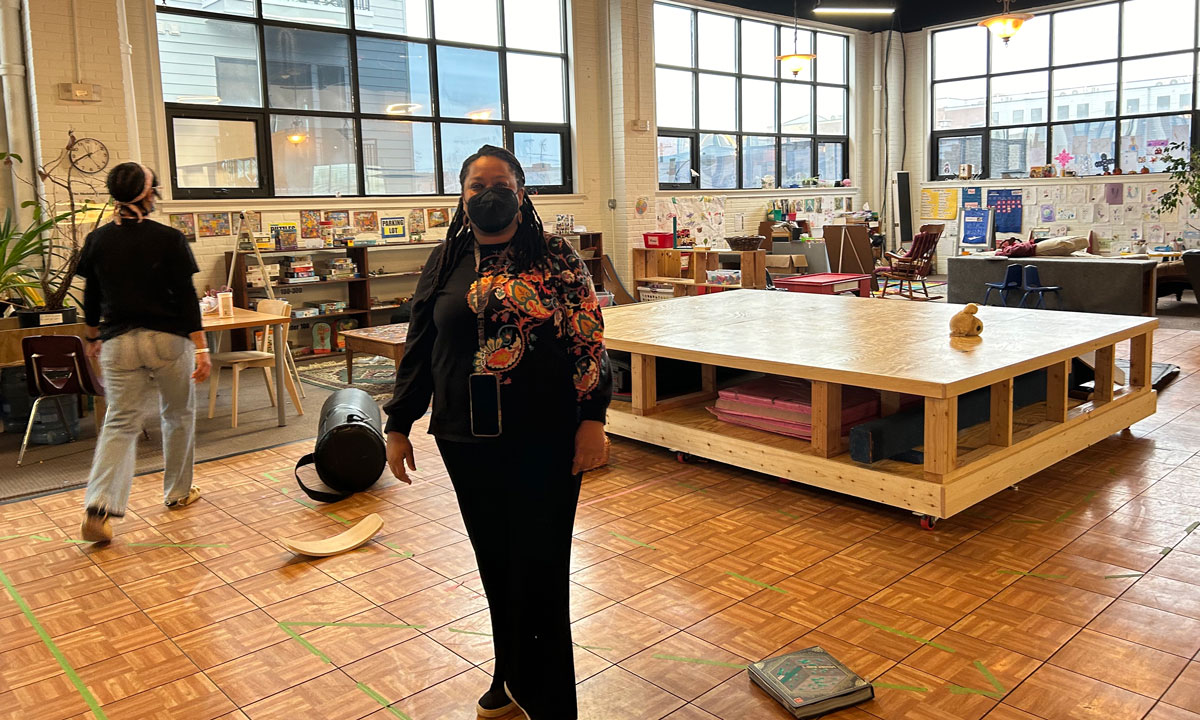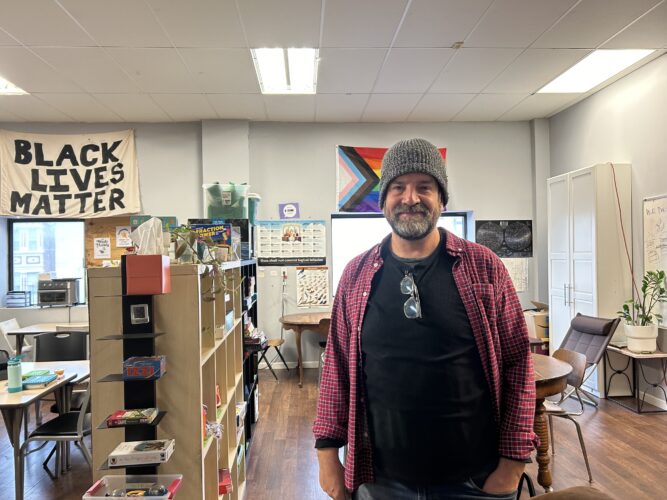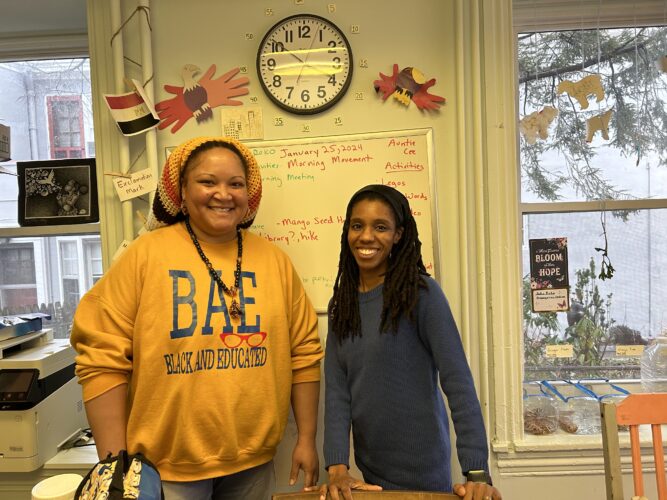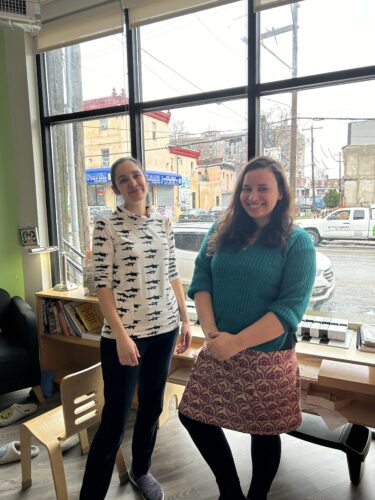45 Years of Microschools in Philadelphia: Inside the Growing Movement of Child-Centered Schooling Alternatives
The birthplace of American liberty has also emerged as a pioneering community for embracing greater independence & freedom in young people’s learning.

Get stories like this delivered straight to your inbox. Sign up for The 74 Newsletter
It was exactly six years ago that I visited Philadelphia and the surrounding area to see what was happening there in terms of schooling alternatives. I was in the thick of writing Unschooled, a book that shares the history, philosophy, and practice of self-directed education, or an educational approach focused on providing young people maximum freedom to drive their own learning. Known for its role as the birthplace of American liberty in 1776 with the signing of the Declaration of Independence, Philadelphia was also a pioneering place for promoting greater independence and freedom in young people’s learning.
One of the first self-directed learning centers for homeschoolers, or what today we might call a microschool, opened just outside of Philadelphia in 1978. Open Connections has grown and flourished over the past four decades and inspired the creation in 2016 of Natural Creativity, a microschool in the Germantown section of Philadelphia that embraces non-coercive, self-directed education for homeschoolers of all ages who attend the center several days a week.
When I visited Natural Creativity in the winter of 2018, it had about 20 learners in a bright but cramped section of a local church. Now, Natural Creativity has 50 learners ages 4 to 18 in a large, loft-style building a few blocks away from its previous location. Krystal Dillard joined Natural Creativity as co-director in 2020 after seeing a documentary about the center and its embrace of unschooling and self-directed education principles. “I have a Master’s degree in education and never heard about this idea,” said Dillard, who taught in public schools in Fairfax County, Virginia and in an inner-city charter school in Los Angeles before moving to Philadelphia and working as a literacy coach in the Philadelphia Public Schools. “There was so much violence and trauma in the schools here,” said Dillard, who began to feel that education could and should look different. When she discovered Natural Creativity, it showed her what was possible.
The story was similar for David O’Connor. He was teaching theater courses at the University of Pennsylvania when he and a group of parents learned about Agile Learning Centers (ALCs), a global network of microschools and self-directed learning communities. The parents had been inspired by the educational philosophy of the Philadelphia Free School, a Sudbury-model school that opened in 2011, but they gravitated to the tools and practices of the ALC approach. The group launched Philly ALC in 2018 with 20 learners in a church basement.
Today, 50 learners of all ages learn together in a spacious building in Philadelphia’s Bella Vista neighborhood, with a second location at the Awbury Arboretum.

“What shocked me the most at the university level was how much my students had to unlearn in order to have the curiosity again to learn new things,” said Philly ALC staff member, Jessie Dern-Sisco, who taught college students at Villanova University for several years during and after receiving a Ph.D. in philosophy there. “Here, we don’t have that problem.”
“A lot more families are looking for something like this,” added O’Connor, who explained that about 16 of the current learners attend Philly ALC as full-time recognized private school students, while the rest attend part-time as homeschoolers several days a week. Tuition is pay-what-you-can and accessibility is a key priority. O’Connor said the average family is paying about $7,000 per learner, with the maximum annual tuition at $11,000. Fundraising and philanthropy, such as the microgrant Philly ALC and other local microschools received from the VELA Education Fund, help to make these programs even more affordable to more families—especially in a state like Pennsylvania that has minimal education choice policies.
It was a VELA grant that helped Lauren Umlauf and Hannah Mackay to grow their program, build community, and begin to find ways to help other prospective founders launch similar spaces in their own neighborhoods. Previously part of the Philly ALC community, Mackay and Umlauf spun-off their self-directed learning center, The Dandelion Project, in a separate neighborhood where they now serve 18 learners ages 5 to 12, with plans to create a teen program. Both former public school teachers, Mackay and Umlauf wanted a radically different approach to teaching and learning for their own children and others in their community. They piloted their program outside in a public park in 2021 and opened the doors to their dedicated space in a bright and colorful building in South Philly in fall 2023. In addition to The Dandelion Project’s three-day program for homeschoolers, it also offers afterschool programming and vacation and summer camps for local youth.
Beyond Self-Directed Education
While the City of Brotherly Love has seen escalating interest in low-cost, self-directed learning models like those described above, I was particularly pleased to see the growth of other alternative education models that embrace different learning philosophies while placing children first. A diverse, dynamic ecosystem of decentralized education options enables families to find the learning environment that best meets their distinct needs and preferences.
Some of that growth has occurred as a result of the pandemic response and prolonged remote schooling that led parents to consider — or create — new educational options. That was how Koku-Roko came to be. A local mother of four children began offering a space in her home for local families who removed their children from school in 2020. That evolved into an established non-profit learning cooperative that centers the experience of Black and Brown homeschooling families. Since fall 2023, learners meet up to four days a week in a warm, welcoming storefront location, tucked along a quiet, brick street in Germantown.
“The model of traditional schooling doesn’t fit with kids’ desire to move and have a voice in their day and in their learning,” said Jasmine Miller, a mother of three who helps to lead Koku-Roko. Miller was drawn to homeschooling but wanted something more collaborative. As a learning center for homeschoolers with hired educators, Koku-Roko enables Miller and the other founding parents to continue to work as full-time professionals, while taking turns being on-site to help steward their center, which emphasizes family-focused, child-led, project-based learning.

Miller explained that Koku-Roko’s founding parents actively sought a location for their co-op in the largely African American Germantown neighborhood in order to be closest to the families they serve. That was the same catalyst for Imani Jackson and Kareem Rogers, two educators currently working in a traditional private school in Philadelphia who are opening Poinciana Montessori this fall in Germantown. Part of the fast-growing Wildflower Montessori microschool network that emphasizes affordability, equity, and an inclusive, culturally-responsive learning environment, Poinciana will be the second Wildflower elementary microschool in the city, following in the footsteps of Hyacinth Montessori that launched in West Philadelphia in fall 2022.
Philadelphia resident Sunny Greenberg works for the Wildflower network helping to support new and prospective microschool founders. She sees rising interest in microschooling, both in her city and nationwide. “Microschools like Wildflower can meet children where they are more quickly and pivot when necessary,” she said. “Because of their size, it is easier to build community and the sense of belonging that can be missing in larger school settings.”
It’s breathtaking to witness the expansion of affordable, learner-centered education options in Philadelphia in just six years. Not only have the microschools I visited in 2018 grown in size and space, they have helped to lay a foundation for education innovation throughout the city.
As Madeleine Nutting, co-founder of Hyacinth Montessori, told me: “The school I wanted to teach at didn’t exist.” Like so many other entrepreneurial parents and teachers in Philadelphia and beyond, she built what she couldn’t find.

Get stories like these delivered straight to your inbox. Sign up for The 74 Newsletter

;)